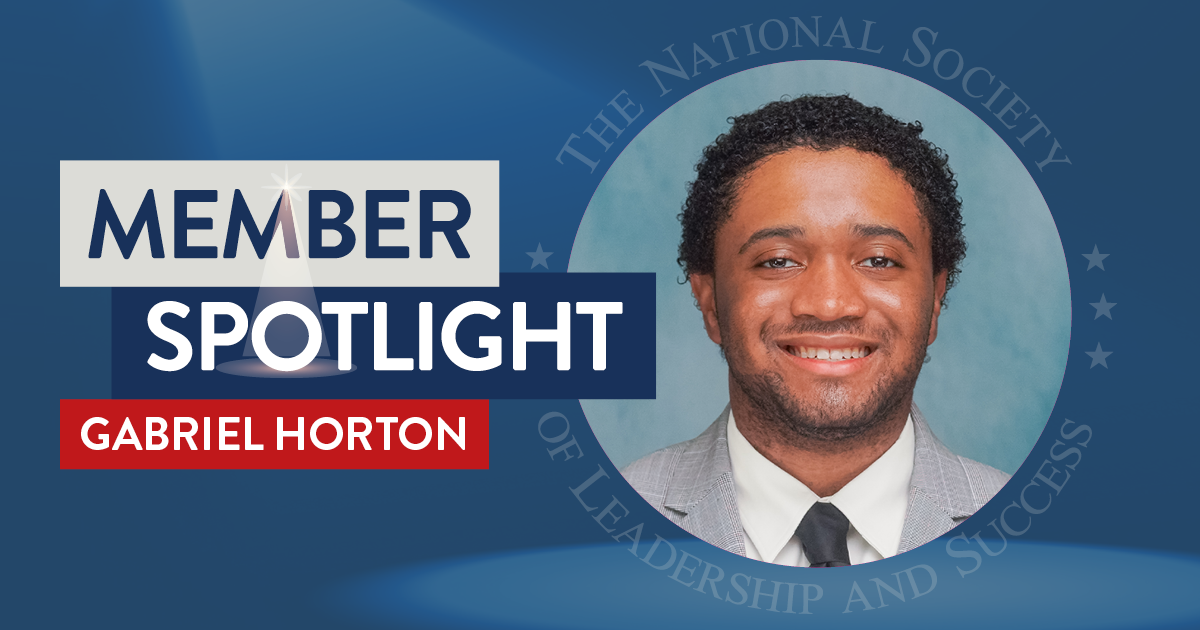Augusta University graduate Gabriel Horton has spent his summer in elite company, completing his internship at NASA through their highly competitive internship program.
With a bachelor’s degree in cybersecurity and hands-on internship experience under his belt, Horton’s journey has only begun. Heading back to his alma mater, Horton starts his master’s degree in information security management this fall where he will continue to complement his experience with education.
The Value of Hands-On Experience
Through his paid internship at NASA, Horton gained the opportunity to work with a NASA mentor and contribute to agency projects, giving him the essential hands-on experience that interns need.
This isn’t Horton’s first internship; he took part in a seven-month internship with the United States Secret Service in Augusta, GA, assisting with open-source intelligence projects. Prior to that, Horton went to Fort Gordon, GA to complete an internship with U.S. Army Network Technology Command.
Horton is also one of seven students chosen to be part of the inaugural cohort for the U.S. CyberCorps Scholarship for Service program, aimed at recruiting future cybersecurity professionals by providing scholarship funds.
At the heart of all these experiences is the act of putting yourself out there and being curious. Each of these opportunities that Horton has sought out provided him with invaluable experience to prepare him for his chosen career.
RELATED: GO BE BRAVE
Success Takes More Than Technical Skills
While Horton’s success is due in large part to the technical skills he developed, like languages (HTML and Python), operating systems (Windows and Linux), technical software, and networking fundamentals (such as subnetting), he acknowledges that another essential contribution to his success was the development of “soft skills such as communication, teamwork, problem-solving, and time management," he says.
As Horton notes, soft skills are an essential tool for success, helping to build relationships with others. Also referred to as "human skills," they are the skills just as important as other so-called “hard” skills. Interpersonal skills reflect your attitude, how effectively you complete your work and work with a team, and much more.
Horton was able to learn skills like these, along with leadership skills, with the NSLS. "The NSLS has helped me to become a stronger leader because it creates an environment that cultivates leadership skills, fosters personal growth, and empowers individuals to take on leadership roles and learn from successes and failures."
At the NSLS, the learnability of interpersonal, human, or soft skills is emphasized. Misconstrued as something you either have or don't, soft skills are a key focus for NSLS members as they progress through leadership development. These skills can be nurtured and learned and put into practice.
This is why members experience the Foundations of Leadership program right when they begin; as part of their Steps to Induction, members learn about their own strengths as well as the skills and tools they need to become powerful leaders.
One of Horton’s role models for soft skills, and the dedication required for success, is his father. "My father sets an example for me. He demonstrates leadership qualities within my family, has a strong work ethic, is dedicated and committed to his responsibilities, and has experience and wisdom which provides me with insight and guidance."
Horton's Advice for Future Leaders
Horton’s advice comes down to determination, persistence, and learning how to be part of a team.
"In my opinion, leadership is the ability to inspire and guide others to work together toward a common goal."
Like all great leaders, Horton understands that to achieve your goals, it won't be a walk in the park either. Obstacles are just part of the terrain getting there.
"You will make mistakes. Learn from them, and keep moving forward."
Never giving up is a recurring theme for all success stories. Failure is just part of the process. In fact, see how failure is actually the best preparation for success.





